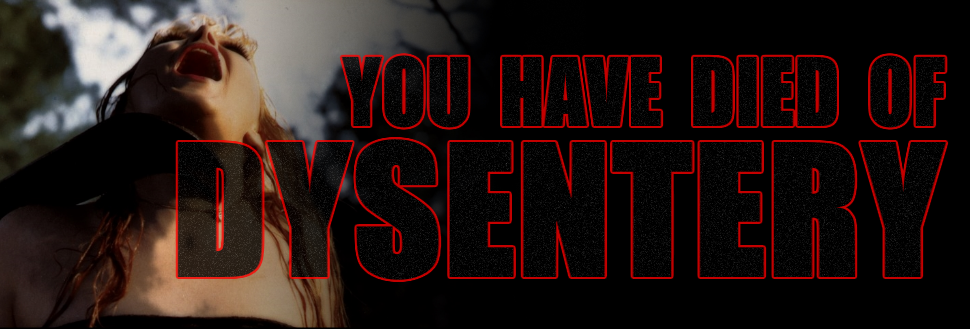Loosely based on the
exploits of Austrian mass murderer, Werner Kniesek, Gerald Kargl's
1983 shocker ANGST appears, at least on the surface, to resemble an
Austrian HENRY: PORTRAIT OF A SERIAL KILLER. It's tempting to just
leave it at that. But despite their surface similarities, Kargl's
film stands out from McNaughton's classic in that it doesn't actually
tell a story. It isn't interested in psychological depth or character
arcs. It doesn't have a moralizing bone in its body. This isn't
really a story about a murderer. It's a film about murder. It doesn't
want us to condemn or empathize. It doesn't try to frighten or
offend. All it wants of us, all it asks of us, is to see.
Sure, we get plenty
of voice-over narration from our unnamed killer detailing his plans,
his desires, his anger and self-absorption, but it's all white noise.
Unlike Gaspar Noe's I STAND ALONE, a film very much influenced by
ANGST, the running monologue adds virtually nothing to the
experience. Noe's bitter, angry Butcher comes off as a megalomaniac
trapped in a dime-store body, spouting poisonous rhetoric as if he
were reading from some dark dystopian manifesto (think Notes from
Underground as written by Ted Bundy). The violence of Noe's film lies
almost completely within that rhetoric. For an anti-polemicist like
Noe, the words the Butcher speaks (and the attitudes he espouses) are
far more dangerous than any unsheathed knife.
The plot, as it
were, concerns an unnamed man being released from prison. He tells us
that he has spent the better part of his life locked up. His first
incarceration was the result of an assault on his mother, the second
was the result of an attempted murder of an elderly woman. He only
has one thing on his mind and that is to commit another murder. The
man visits a cafe, eyeing up two teenage girls. Knowing full well
that there are too many witnesses around, he instead plans on
strangling his cab driver, but bolts when she becomes suspicious. He
finds a secluded home and breaks in, discovering a mentally and
physically disabled man. Soon enough, the man's mother and younger
sister arrive home. That's when the murders begin.
ANGST attempts to be
both a stylized art film and a serious exploration of the act of
murder. While it never quite reaches the dizzying heights of
dramatized madness as the final 15 minutes of THE TEXAS CHAINSAW
MASSACRE, the visual approach Kargl has put in place here (the film
is all Dutch angles, quick edits, busy, gliding camerawork and
indulgent uses of SnorriCam) does manage to disorientate enough to be
effective. The violence, when it comes, hits hard, with one murder in
particular (a protracted stabbing that ends with a sickening attempt
at light cannibalism and some implied necrophilia) being quite
difficult to stomach. This is the one area where I wish Kargl would
have set aside his bag of tricks. ANGST takes the realistic approach
to its scenes of violence, much more TORN CURTAIN than PSYCHO. The
killings are protracted and painful, both for the victims and for the
audience. These scenes did not need to be as hyper-stylized as they
are, even though part of me is glad that I had some kind of
distancing mechanism between me and the film during those moments.
Because ANGST is a
feel bad kind of movie. It really works its way under your skin. It's
the anti-A SERBIAN FILM, a movie that is loaded with outrage, but
plays it all like some sick joke, robbing it of all its power in the
process. ANGST, however, is the real deal. For much of the film, I
sat in slack-jawed awe, completely engaged with every grimy moment
that went by. Much of the films power is derived from the performance
of Erwin Leder as the killer. It's a go for broke performance without
a shred of self-preservation. There's a lot of Klaus Kinski in Leder.
Both men are all eyes and jawline, and Leder sells the film
completely in a brilliantly nuanced performance that should, if there
were any justice in the world, be sat right up there with Michael
Rooker's Henry on the list of all-time great movie psychopaths.


No comments:
Post a Comment
SPEAK YOUR MIND